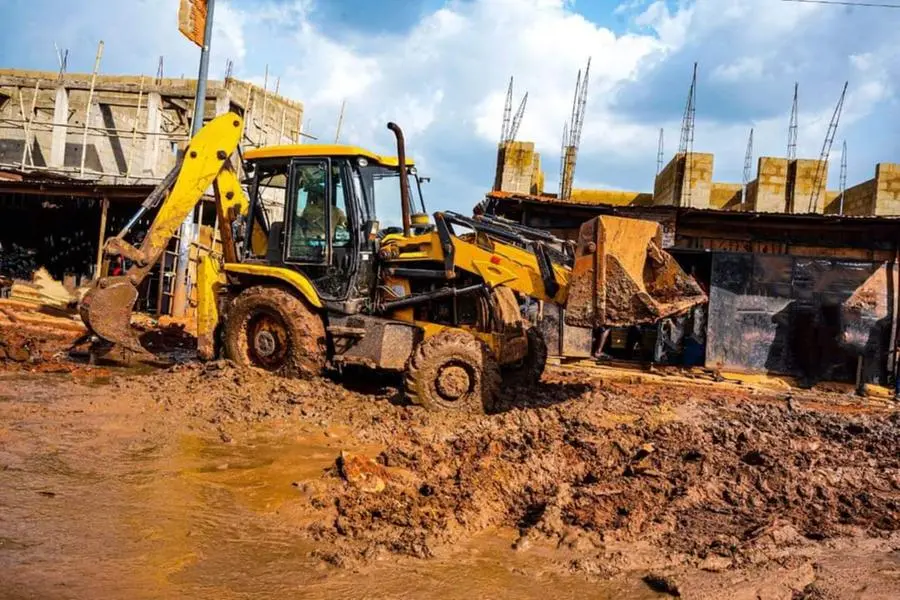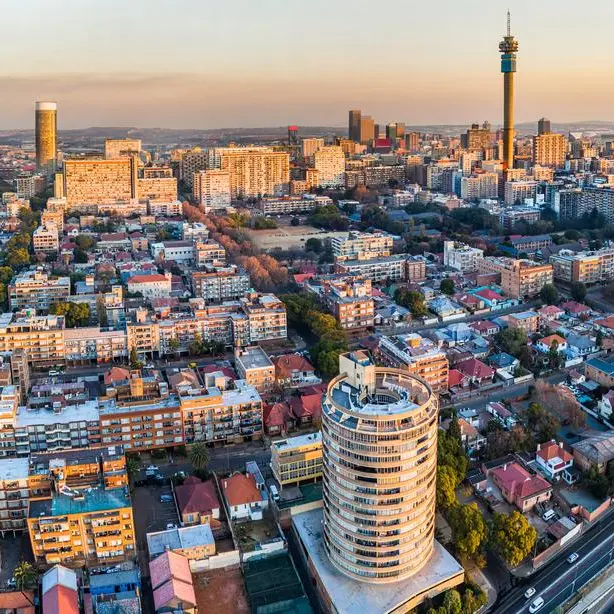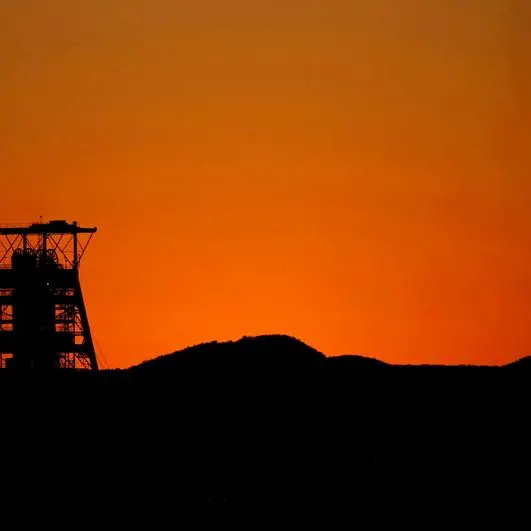PHOTO
Efforts to mitigate the risks that contribute to building collapse while promoting sustainable practices in the construction industry received a major boost at the weekend as built environment professionals and other stakeholders kicked against the proliferation of substandard sandcrete blocks in the sector. DAYO AYEYEMI, reports.
The proliferation of the housing sector with substandard sandcrete blocks is now a source of worries to many practitioners, home builders and contractors.
Unlike 35 to 40 years ago, especially during the construction of Jakande’s estates in Lagos State, where most buildings were constructed purely with sandcrete blocks without the use of columns or pillars due to the quality of blocks, no one can try such ‘adventure’ nowadays as available blocks crumble like a pack of cards during building construction.
Some of the blocks come in six and nine inches.
From one producer to the other, substandard sandcrete blocks hold way in the present building’s market with high price tag.
Although blocks’ producers have blamed high cost of cement and sand/stone dust for the practice, Nigerian Tribune gathered that most manufacturers have tampered with the standard mould for sandcrete block production.
Besides, the appropriate sand-cement-water ratio for standard sandcrete block production has been jettisoned by most producers
This ugly practice invariably reduces the quality and strength of sandcrete blocks, making them susceptible to easy break when loading and offloading from the truck at construction sites.
For Mrs Iyabo Abiola, a trader in Ketu’s fruit market, she is not happy that out of 1,000 sandcrete blocks she purchased penultimate week, from a factory in Alapere, no fewer than 30 pieces crumbled when offloading to the site.
She said that more blocks even got broken when the bricklayers were setting them during the construction of a building in Alapere, Ketu Lagos.
She expressed her displeasure over the proliferation of substandard sandcrete blocks in the market, blaming it on lack of fear of God and enforcement of standards by the agencies of government in charge.
“Today’s sandcrete block manufacturers are no longer after quality but profit. Mere lifting these blocks by hands can lead to their break. There are no longer standards, and no supervision. Everybody is doing their things in their corners. People no longer fear God,” she said.
A landlord, Issac Adeyemi, said that he already completed a shopping complex in Ibafo, Ogun State before noticing cracks all over the walls.
He said he was surprised when the bricklayers that worked in the site told him that most sandcrete blocks used during construction were substandard.
He said that it cost him more money to patch the wall.
Another person in Ogba, Tunde Awolusi, said his fence collapsed three weeks after construction due to substandard sandcrete blocks’ usage.
“More buildings will still collapse if production of substandard blocks is not checked, “ he said.
Decrying this ugly development, built environment professionals under the auspices of the Building Collapse Prevention Guild (BCPG), government’s agencies and other stakeholders have come together to move against the production of sub-standard sandcrete blocks in the country.
The stakeholders, who gathered at the “Grassroots Advocacy Against Building Collapse” organised by the BCPG, Ayobo-Ipaja Cell, bemoaned the proliferation of sub-standard sandcrete blocks in the housing industry.
They called for more collaboration among all stakeholders for intensive public awareness/campaigns on quality sandcrete blocks’ production and usage.
They also tasked the government’ agencies in charge of standards’ enforcement not to give any room for compromise by ensuring strict monitoring/ supervision.
Stakeholders at the advocacy against the production of sub-standard sandcrete blocks included the officials of the Lagos State Materials Testing Laboratory (LSMTL), Standards Organisation of Nigeria (SON), built environment practitioners, traditional rulers, community leaders and National Association of Block Moulders of Nigeria (NABMON), among others.
Themed: “Maintaining the Quality of Sandcrete Blocks in an Environment of Volatile Production Costs”, one of the major highlights of the forum was the practical demonstration of standard sandcrete blocks’ production to the admiration of the workshop’s participants.
Speakers at the forum, General Manager, LSMTL, Mrs. Olayinka Abdul, an engineer; Director- General/ Chief Executive, Standards Organisation of Nigeria (SON), Chukwunoso Okeke; Chairman, Nigerian Institution of Civil Engineers, Lagos state chapter, Faith Oko-Ukoni; former President of BCPG, Mr . Kunle Awobodu; immediate Past Chairman of BCPG, Lagos Chapter, Mrs. Adekemi Okusaga; President of NABMON, Prince Adesegun Banjoko; Olu of Ilado- Akoko, Oba Rotimi Ikugbayigbe; and Coordinator of BCPG, Ayobo -Ipaja cell, Dr Moshood Abiodun Kusimo, called for more collaboration, enforcement of standards and attitudinal change among block producers in the bid to rid the construction sector of substandard sandcrete blocks, leading to collapse of buildings.
General Manager, LSMTL, Mrs. Olayinka Abdul, appealed to sandcrete block producers on the need to work with her agency to promote a sustainable built environment devoid of building collapse.
She said that the statistics about building collapse was alarming, pointing out that the ugly incident did not only lead to loss of lives, but also represented significant economic costs, community trauma, and a breach of the trust the society placed in producers of blocks, builders and enforcers of safety.
She tasked sandcrete block producers to always prioritise quality over cost in the industry, saying this would ensure the safety and durability of buildings, despite the fluctuating materials’ costs.
She said: “The rising challenges in our industry reflects a critical juncture where we must reaffirm our commitment not only to quality, but, to the safety and integrity of the structures we build
“Sandcrete blocks have long been a cornerstone of our construction industry, due to their affordability, availability and versatility. However, the quality of these blocks directly influences the safety and durability of these structures. When we compromise on quality-whether due to the rush of production, substandard materials, or cost-cutting measures, the repercussions can be dire.”
According to her, production of sandcrete blocks was heavily influenced by the cost of raw materials, labour and logistics., but warned that, in spite of the fluctuating prices, there must be a commitment towards maintaining and enhancing the quality of products.
Reiterating on various strategies for maintaining quality, Abdul explained that there must be an avenue to identify and explore alternative materials that meet quality standards without straining budgets.
“Collaborating with local suppliers and investing in sustainable materials will enhance the durability of erected structures,” she said.
She emphasised that the LSMTL is vital for upholding the quality of sandcrete blocks, particularly in an environment marked by unpredictable production costs.
“Our role is not just important; it is fundamental to ensuring the integrity of construction materials.
“As construction materials are subject to fluctuations in price and availability, ensuring consistent quality is paramount for the safety and longevity of structures,” she said.
She listed LSMTL’s tests on sandcrete blocks to include quality assurance testing, compressive strength tests, water absorption tests, accuracy checks, and standardisation of materials.
“LSMTL provides rigorous testing of sandcrete blocks to verify their compliance with established standards. “The agency acts as a technical advisor to builders, contractors, and producers regarding best practices in the production and use of sandcrete blocks. This includes guidelines on material selection, recommendations for optimal materials to use during periods of price volatility, and education for producers on efficient and cost-effective manufacturing processes that maintain quality,” she said.
Director-General/Chief SON, Chukwunoso Okeke, commended BCPG’s members for their dedication to tackling the pressing challenges facing the construction industry, especially the focus on quality/standards for sandcrete blocks in today’s economic environment.
Okeke, who was represented by one of his staff at the forum, described the theme of the workshop as “ timely and critical,” pointing out that sandcrete blocks are the foundation of most building projects in Nigeria, adding that their quality directly affects the integrity and durability of structures.
“However, the current challenges of fluctuating production costs, unstable supply chains, and economic pressures have made it increasingly difficult for producers to maintain consistent standards.”
As the Director-General of SON, he said that he recognize the vital that adherence to standards played in ensuring the safety, reliability and sustainability of the built environment.
“The persistent cases of building collapse across the country are a stark reminder of the consequences of non-compliance in the established standards,” he said.
He explained that SON had developed and enforced comprehensive standards for sand creter blocks, such as the Nigerian Industrial Standard (N15 587:2000).
This standard, he said specified the requirements for the composition, dimensions and compressive strength of sandcrete blocks to ensure they are safe and fit for purpose.
“However standards are only effective when embraced and implemented by all stakeholders across the value chain – block producers, suppliers, contractors, regulators and end users,” the SON‘s DG said
To ensure that all stakeholders embrace standards, he explained that SON has intensified its collaboration with industry stakeholders to promote awareness through sensitization and training: monitor compliance, provide support and laboratory testing.
“SON is proactively working to enhance the quality of sandcrete blocks by partnering with industry stakeholders. through awareness campaigns, compliance monitoring, and technical supports. SON aims to ensure that producers and artisans are well informed, production facilities meet required standards, and manufacturers receive the necessary resources to maintain quality,” Okeke said.
Chairman, Nigerian Institution of Civil Engineers, Lagos State Chapter, Faith Oko-Ukoni; said that quality blocks would require a precise mix of cement, sand, gravel, and water, with the option to include chemical additives for enhanced properties, ensuring the blocks meet strength and durability standards.
She pointed out that the quality of sandcrete blocks could vary depending on the production method and the properties of the materials used.
Some factors that affect the quality of sandcrete blocks, she listed included the compressive strength, consistency of cement ratio, production method, supervision and regulation
“The minimum compressive strength of sandcrete blocks in Nigeria is 2.5-3.45N/mm2. However, commercially available sandcrete blocks in Nigeria have been measured to be as low as 0.5-1 N/mm2, which is below the standard requirement,” she said.
She urged producers of sandcrete blocks not to because of high cost of production continues to injure people’s future in the drive to make profit.
Copyright © 2022 Nigerian Tribune Provided by SyndiGate Media Inc. (Syndigate.info).




















